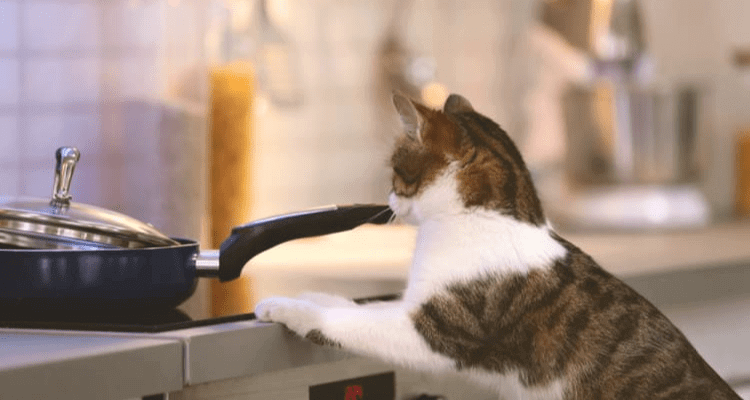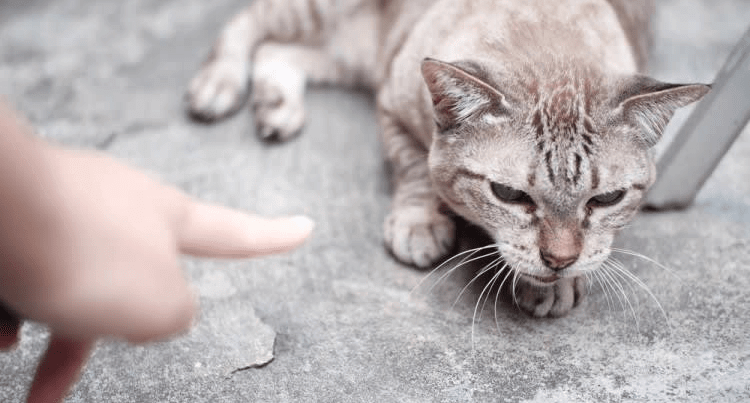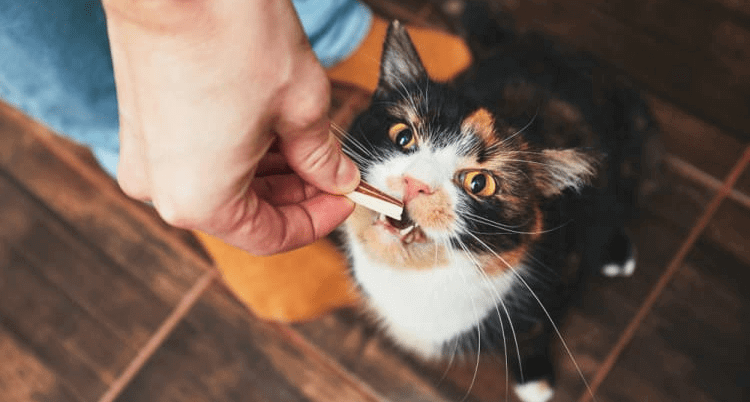1. Start With Mealtimes

It can be difficult to know where to begin, especially when you’re fighting against your cat’s natural instinct. So, a good place to start is mealtimes. If your cat refuses to leave the table or the kitchen counters while you’re eating or cooking, then be strict and confine them to another room or area for the duration. Make sure your cat has everything it needs, such as water, bedding and toys, and of course a litter tray. Remember to let it out straight away once you’ve finished. If you can get into a routine of doing this, then your cat will soon learn that surfaces are out of bounds, especially at mealtimes.
2. Make Your Tabletop Unappealing

If your cat continually feels confident when jumping up on your surfaces, they will have no reason to stop. The first thing you should do is make sure that all your tables and counters are clear of food at all times. Secondly, find a way to make these surfaces uncomfortable for your cat so that not only is there nothing for them to take when they jump up, but they also don’t enjoy the sensation. Try using some double-sided tape around the edges of your kitchen counters and dining table. This won’t inconvenience you too much, but it should deter your cat - they don’t like the sticky sensation on their paws.
3. Avoid Punishment

Although sometimes tempting, try and avoid punishing your cat when they jump on the table. Cats don’t typically respond well to punishment, so taking this route could prove counterproductive. Your behavior is likely to frighten your cat, and they won’t associate the punishment with their actions. In fact, physical and verbal punishment can cause heightened levels of stress or aggression in your cat. For those of you with multiple cats, be aware that punishing one can actually have an effect on the other, who might be minding its own business. Punishment then, shouldn’t really be an option.
4. Reward Positive Behavior

While avoiding punishment is best practice, using positive reinforcement can be a very effective way to keep your cat off the table. Rather than trying to stamp out your cat’s natural instincts to climb high, buy them their own apparatus to explore, and reward them when they reach the top. If you keep their focus on this area, and they become familiar with the benefits of doing so, then your cat is less likely to be tempted by your various domestic surfaces.
